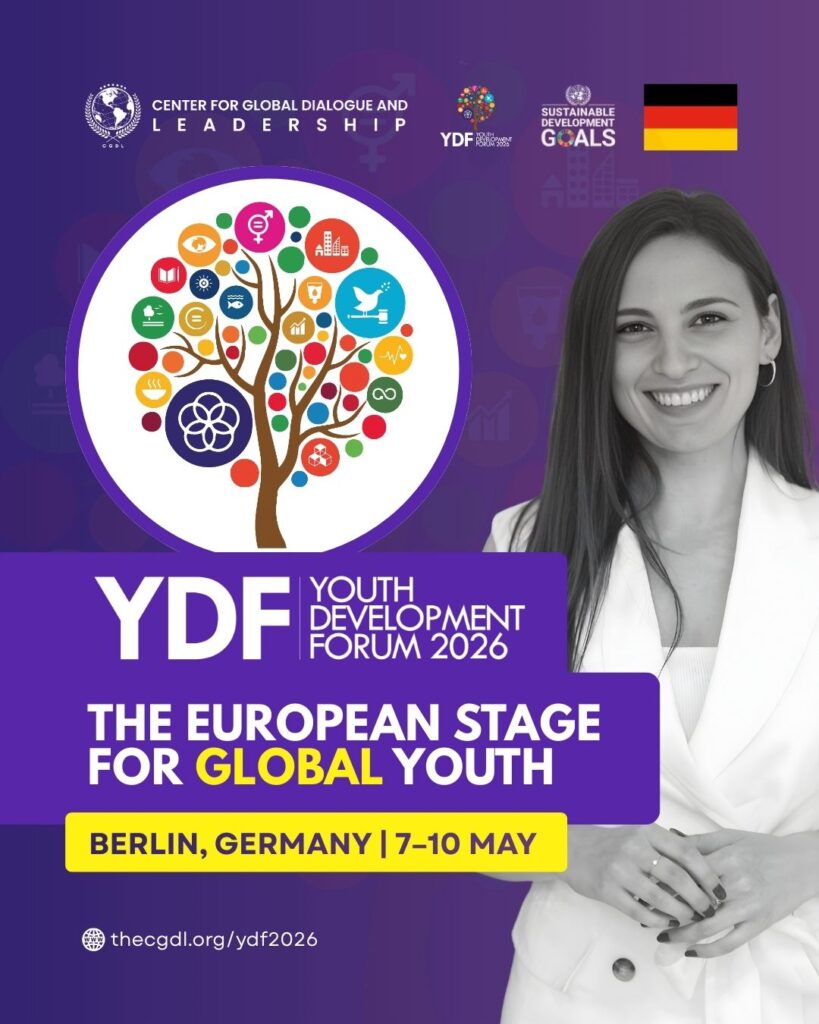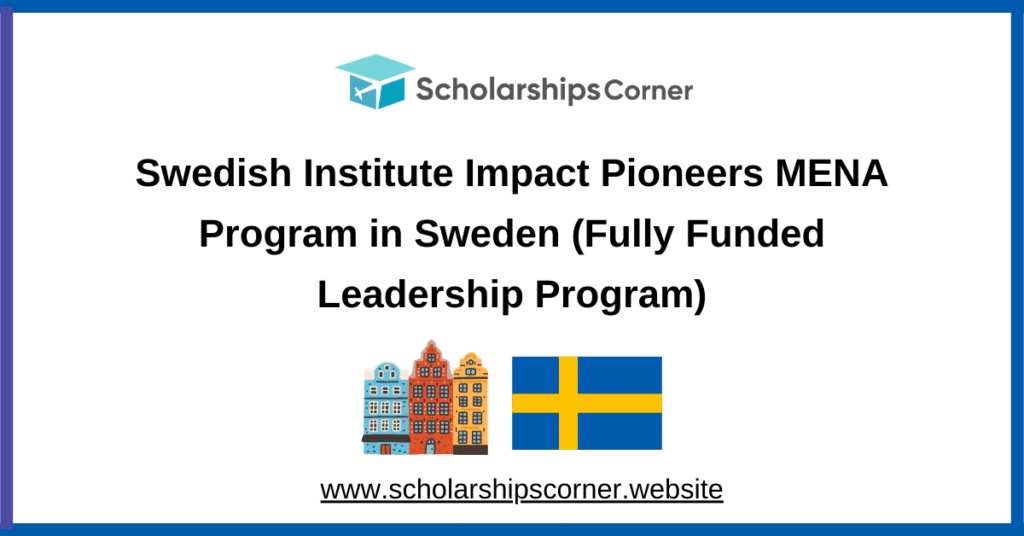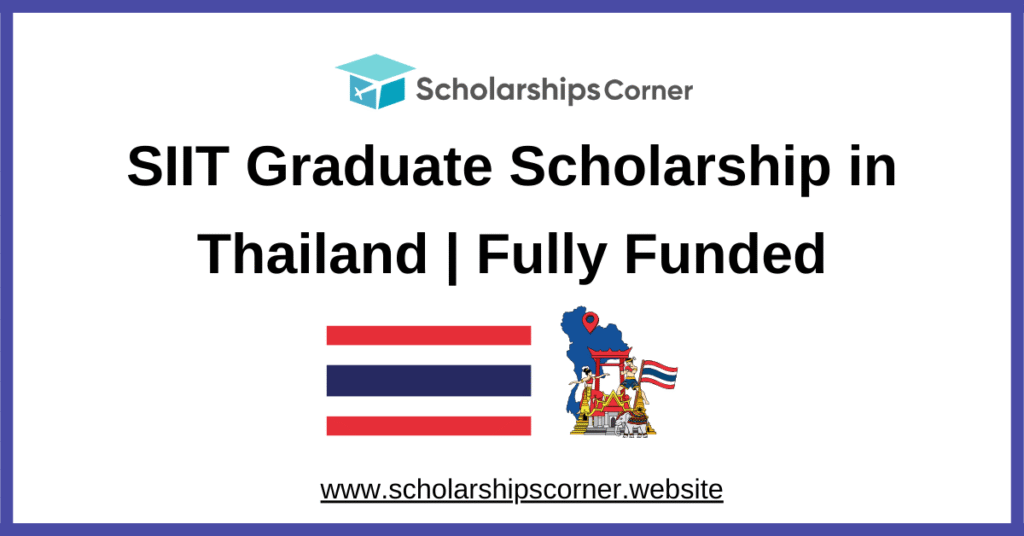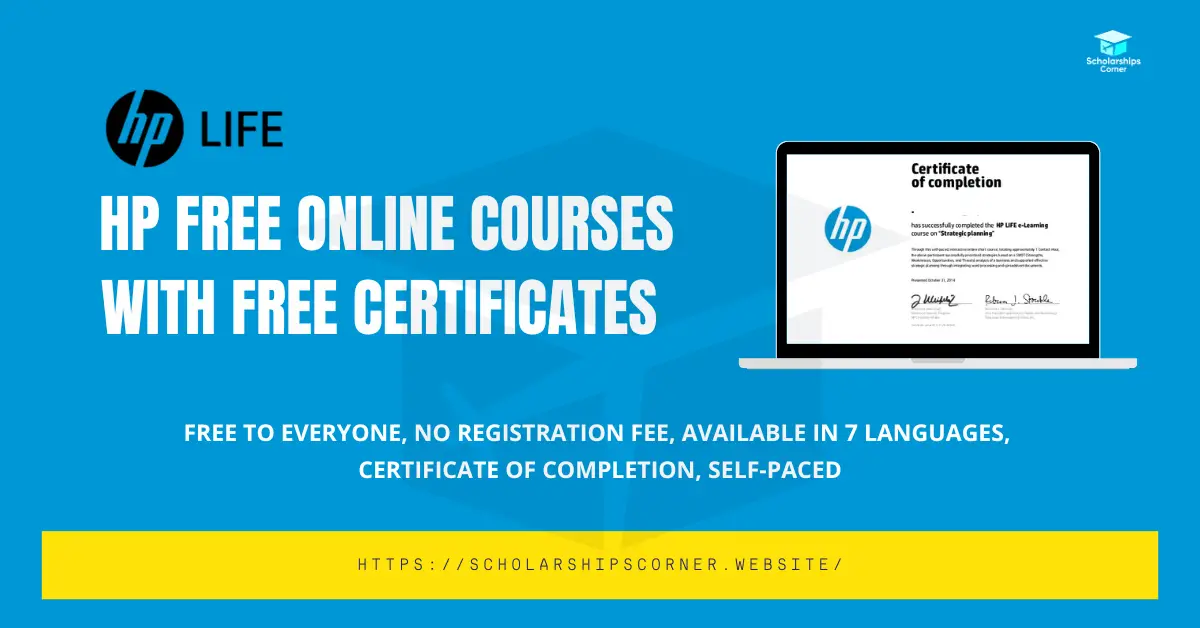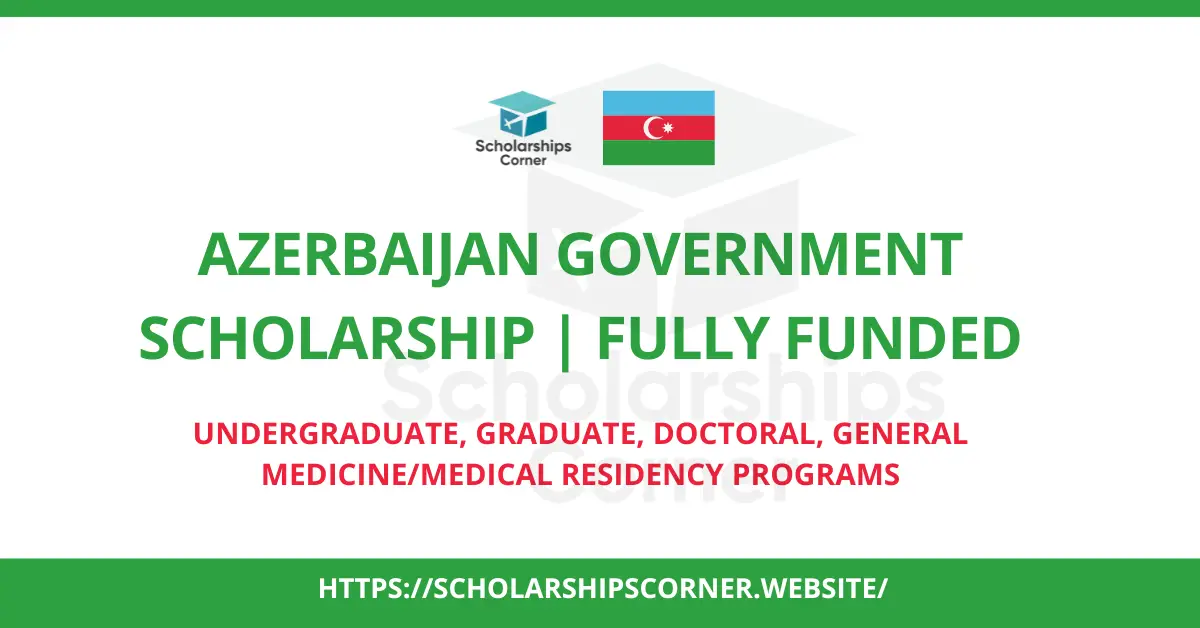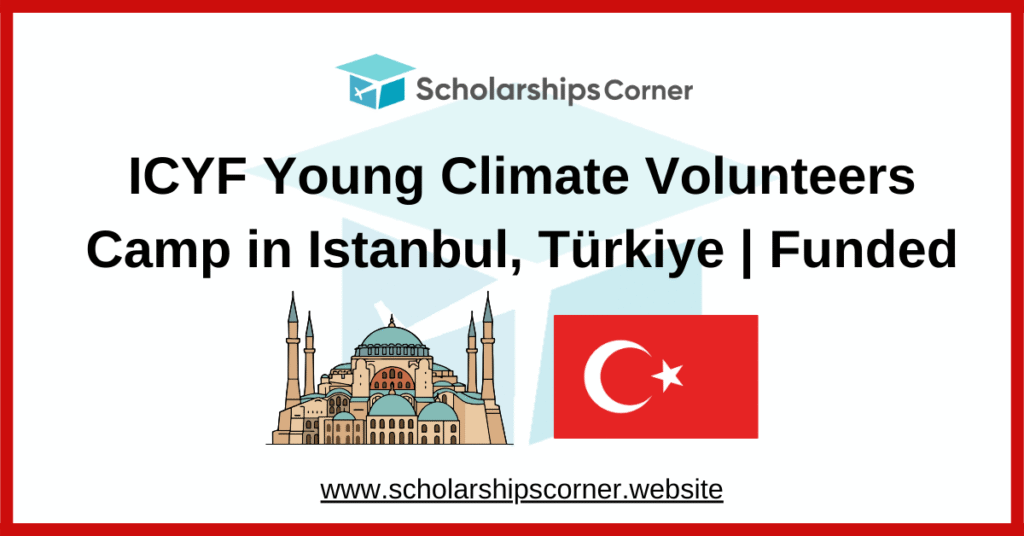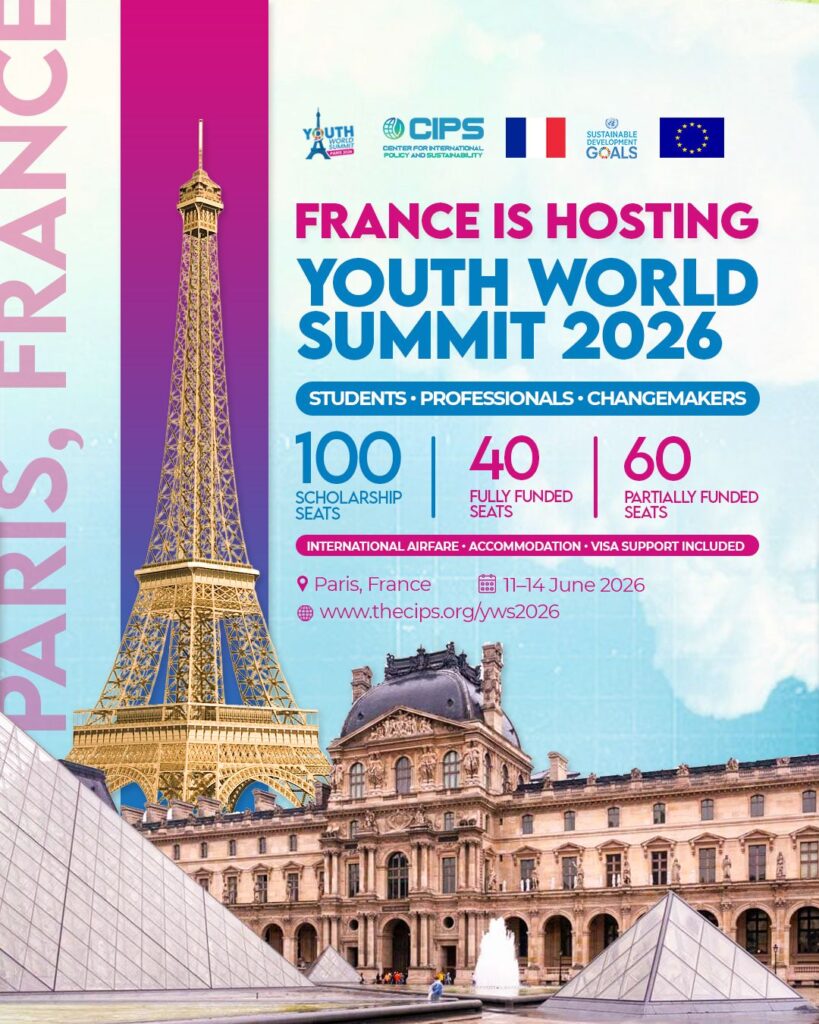Erasmus+ is one of the world’s prestigious and competitive scholarship programs. The Erasmus scholarship is a fully-funded scholarship in Europe. Follow all the steps of this Erasmus+ scholarship guide.
In this Erasmus+ Scholarship Guide you will learn about;
- Eramsus+ Overview
- How to Apply for Erasmus Scholarship 2021
- General Eligibility Criteria of Erasmus+ Scholarship
- Required Documents for Erasmus+
- Key points for increasing your chances of selection
- FAQs Erasmus+ Scholarship
- Motivation Letter with Sample
- Letter of Recommendation with Sample
- Erasmus+ Interview Tips
Carefully read all the points of the Erasmus+ Scholarship Guide before checking the Erasmus Mundus Catalogue 2021-2023
Erasmus Mundus Joint Master Degrees 2021:
Overview
An Erasmus Mundus Joint Master Degree (EMJMD), is a prestigious, integrated, international study program, jointly delivered by an international group of higher education institutions.
EMJMDs award EU-funded scholarships to the best student candidates applying under annual selection rounds.
The study must take place in at least two of the Programme countries (European Countries). Part of the studies can also take place in Partner countries (generally all other countries other than Europe from which students can apply to this program including Pakistan) if there is a partner- country institution involved.
Duration
An EMJMD is a study program of 60 (roughly equals to 1 year Master), 90 or 120 ECTS (Roughly 2 years) credits. This means that it lasts from a minimum of 12 months to a maximum of 24 months.
Conditions
Students at the Master’s level worldwide can apply.
You must have obtained a first higher education degree or demonstrate a recognized equivalent level of learning, according to national legislation and practices, in the degree awarding countries. (All students with 16 years of Education in Pakistan are eligible to apply).
If you have already received an EMJMD or an Erasmus Mundus Master Course (old name of EMJMD)/Joint Doctorate scholarship (Erasmus special name for PhD scholarships), you are not eligible for an additional EMJMD scholarship. You cannot benefit from another EU-funded scholarship scheme while you are receiving an EMJMD scholarship.
Academic Outcome
The successful completion of the study program will lead to the award of either a joint degree (i.e. one single degree certificate issued on behalf of at least two higher education institutions of the EMJMD consortium) or multiple degrees (i.e. at least two-degree certificates issued by two higher education institutions of the consortium).
Financial Support
To receive Erasmus+ financial support, you must first be admitted onto the course by the organizing consortium and then be selected for an EMJMD scholarship. In EMJMD not all selected students get Erasmus+ scholarship. Such students who are not awarded a grant can study if they can bear the expense of the program. Those who are selected to one or more (max 3, as in one year you can apply to max 3 Master programs) Master courses can get admission in anyone with scholarship (if received) or without a scholarship.
The EMJMD scholarship covers your participation costs (including the tuition fees, library and laboratory costs, full insurance coverage and any other mandatory costs related to your participation in the Master); it represents a contribution to your travel and installation costs and includes a monthly subsistence allowance for the entire duration of the study program.
The total amount of the scholarship varies according to the duration of your course and your nationality (non-EU students receive larger scholarships). The exact amounts may vary for the upcoming batches so I am not mentioning any such detail here. However, the stipend is sufficient enough to study in any country of Europe and live a normal life. The stipend and scholarship are received once you reach your first university for the first semester in the “Home country”.
Before leaving Pakistan, you have to arrange your air ticket and some related Visa expenses, however, you can easily cover those costs with a substantial stipend that you will receive when you will reach there.
Host University is a name given to the university amongst the group of universities for any particular MS program where you generally go to another program country and study at that university. Some programs have non-European partner universities as well, where you can study/undertake internship/undertake research for some months in the 3rd or 4th semester depending upon conditions and approval of your program heads.
A minimum of 75% of the scholarships is awarded to candidates from Partner countries.
How to Apply for Erasmus Scholarship 2021?
Step 1
Students should consult the online EMJMD Catalogue (https://eacea.ec.europa.eu/erasmus-plus/library/emjmd-catalogue_en) and contact the consortium (coordinators’ contacts are given on the website of each program) offering the Master Course for more information on courses and application procedures
The above link lists all the Erasmus Mundus Joint Master Degrees (EMJMDs) that will be offering EU-funded scholarships for courses taking place in the academic year 2020 (wait for the catalog to get updated by October 2020 for 2021-23 batch).
Most Master programs will open applications around late October and require applications to be submitted at maximum between Dec and January or sometimes maybe until February/March (Opening and closing dates vary from program to program), for courses starting the following academic year.
Some new MS programs are added to the list of offered MS programs each year when the catalog gets updated and some may be removed as well. So while checking the link above keep in mind it is for applicants who are now already selected for 2020-22. Those who are reading for coming call in October 2020 for 2021 starting degrees, should bookmark/save the above link and check back later in October 2020. Some project details’ websites of programs given in the above link will have website links in them and some will include soon as some programs are offered for the first time. Contact coordinators of each program for specific queries.
Most programs require applications to be submitted between October and January/ February, for courses starting the following academic year (Sep 2021).
Students can apply to a maximum of three different programs. Students should contact directly the relevant master degree coordinators for more information on courses and application procedures.
Clicking on the acronyms (on the link given above) will open the websites of the respective master courses.
Clicking on the title of the master courses will bring you to the Erasmus+ Project Results Platform. The platform describes the EMJMDs in detail and is constantly updated by the universities.
Read How to win a Chevening Scholarship UK 2021?
General Eligibility
- 16 Years of Education (Last semester/year students can apply to many programs if they expect their undergraduate degrees to be completed around June/July 2021, though you need to check websites of specific programs and email the coordinators to confirm this).
- Proficiency in the English Language is a compulsory requirement (Some programs will accept English Proficiency Letter from your University but most want IELTS/TOEFL as compulsory to apply). To be on the safer side, take IELTS/TOEFL latest by October/November. Most programs require 6.5 and some need 7 scores in IELTS or equivalent in TOEFL. Some programs also require that no individual score within IELTS is below 6 (or equivalent for TOEFL).
- You need Passport as an Identity Document to apply, so apply for it and keep it ready around September/October. Most programs’ applications open in October and end variably around January, February, or even March (rarely). Opening of applications and deadlines to apply to vary from program to program.
Step 2: Required Documents
All programs have different requirements. All programs mostly provide a grid of weightages or general idea of the components of the application that they will consider in determining your merit.
For example, Academic Qualification 20%, Experience in the same field 15%, Subject Knowledge 10%, etc.
- Degree and Transcript (Available or should be available around June/July 2021)
- 2 Letters of Recommendation (Generally, again you need to check program requirements). The formats vary from program to program, your online application will contain guidelines.
- Motivation Letter (Word lengths will vary a lot from program to program). Some don’t give any limit, others may give only one paragraph.
- IELTS/TOEFL (6.5 is safe for most on IELTS or TOEFL Equivalent/English Proficiency Letter if they take it), however, 7.0 is needed for some more competitive programs so try to get a 7.0. Make sure you take the standard tests early as slots are sometimes booked around the deadlines of Erasmus. The result’s availability of such tests also takes time.
- CV in Europass format (https://europass.cedefop.europa.eu/editors/en/cv/compose)
- Valid Passport
- Certificate of Residence: tells that you have not been living in Europe for 1 or more years within the last 5 years (if you want to apply as partner country student). Otherwise, even being Pakistani you will be considered a program country applicant. It can be taken as a letter from university/workplace/municipal office etc. and get it attested ideally from notary public lawyer.
Note: Ideally include your passport number as well in the above residence certificate and it should be on letterhead if possible with sign/stamp from the authorized person and attested by a notary public (a special kind of lawyer stamp in Katcheri etc), also change the details as per your own scenario. For instance, if you have never been abroad, you can write as, “Sohaib has been living in Rawalpindi, Punjab, Pakistan since birth…”
The only thing they are checking through this letter is that you shouldn’t have lived for 12 months or more in Europe in the last 5 years. Otherwise, you are considered program country students (like European nationals) and not partner country students (like Pak/India and all non-Europeans, etc. with higher scholarships because we are not from Europe so our cost of attendance would be high)
- Any other documents you deem as important for your selection like experience certificates, projects, GRE scores maybe if they are high, certificates, seminars/conferences/workshops attended, honors and awards, etc. (These are not required but uploaded in uploads section or attached to Europass CV to show your credentials).
- Of course, filled application form
3rd Step (After Application Submission)
In case you are shortlisted after the initial screening of applications (complete/valid information plus merit-based selection on the basis of your documents, qualification, etc.), you will be informed about your online interview through email (some programs don’t have an interview so don’t worry if there isn’t one for your program). Skype interviews are the last step if you are shortlisted for it and if there is an interview for your program, after that you either get selected with/without a scholarship and are informed via mail to confirm your admission by completing their required formalities.
Must Read the Erasmus+ Interview Guide
The dates of acceptance/rejection to vary according to deadlines. Programs with early deadlines announce results a bit earlier than others. But after selection, all the students fly to Europe generally around SEPTEMBER. If you apply in Erasmus call starting in October 2020 and get selected, you will go to your Home Country University in September 2021.
Key points for increasing your chances of selection
Erasmus is highly competitive and therefore highly prestigious scholarship.
Some key areas I have identified that impact a lot on your selection chances (Note: It is not a rule that these points work as I am writing or you can’t get selected if you don’t fulfill any of these criteria), it is merely for guidance purpose.
- CGPA matters in Erasmus scholarships (GRE is not required so CGPA sometimes is the most important factor that can win you the race or compensate for your other below average areas). Low CGPA is not a barrier, however.
- English Proficiency (95% Master programs are taught in English so no take it easy job here), however very few programs could require proficiency in some European languages too as one or some semesters are offered in local languages so check individual websites before applying to any specific program.
- The relevance of the field in which you are applying and your past academic and professional background
- Knowledge of the field in which you are applying (interviews are sometimes technical and lengthy, a kind of test too)
- Experience in the same field demonstrated through internships/job experience etc.
- Your intent and ability to study/work in highly diverse and cross-cultural contexts (demonstrate it in your interview too if you have taken any trips/projects/job etc. with some foreigners)
- Your Motivation Letter MATTERS A LOT more than you may dedicate time for it, it can make or break the deal irrespective of your CGPA, etc. (My sample is attached at the end of the document). Google as well as how to write an effective SOP/Motivation letter.
- Letters of Recommendation (My samples are attached at the end of the document)
- Your co-curricular and extra-curricular activities, Massive Open Online Courses (MOOCs) have significance, especially when changing a field somewhat and/or when CGPA is not too high.
- Your passion and intent to study in the field you applied to, demonstrated through motivation letter and an interview plus by taking relevant courses/internships, etc.)
Erasmus+ FAQs
How can I improve my profile and increase my chances of selection?
Apart from your educational performance, your complete profile matters. So always make sure to take certificates for co and extracurricular activities. Online relevant courses on Coursera etc. help as well. Relevant internships/experience/projects/ research work everything counts. Make sure you do thorough preparation.
What if I get rejected for ERASMUS?
The biggest reason for rejection is not applying. Apply anyway, take IELTS! Your hard work may meet ERASMUS this time.
Can I apply for ERASMUS even if I did not graduate from a top university?
Your undergrad university name does not matter for ERASMUS. Students get in from all universities.
How do I know which program am I eligible for?
Programs’ names are not typical in ERASMUS. Check all websites of programs thoroughly and you may find out that you are eligible in some relevant programs.
Would ERASMUS help me in my future PhD goals?
ERASMUS Master is the most preferred degree for PhD in Europe. Most people can enroll in PhD abroad right after their Erasmus MS. Erasmus+ however, is only for MS level admissions.
Which IELTS test should I take?
IELTS GENERAL is not acceptable for ERASMUS applications. Only IELTS ACADEMIC or TOEFL.
What are the standard documents required for the ERASMUS application?
once they start opening in October, you mainly need
- Passport
- IELTS/TOEFL score that too most of them do not need an official score just a printed score would do. (But some may require official report)
- LOM
- Normally 2 LORs
- Certificate of Residence
- Europass format CV
- Filled application form with attachments you deem as relevant for the course.
All of these can be done maximum in 20 to 30 days while all programs give you at minimum 70 to 80 days to apply after the opening date.
Many of the above docs would remain the same or will need little changes if you are applying to more than one program.
I am currently enrolled in the undergraduate program. How can I proactively stand eligible for ERASMUS?
You must know that if you are applying for 2021 to 2023 master, you will need transcript and degree IN HAND maximum by end of July or the start of August 2021. There is no fixed date but practically without a degree and then further attestations your selection will not get unconditional and hence some programs may allow you to fly to Europe with just transcript but most will not, therefore you must be aware that FROM NOW ON keep your department, HOD, heads of the exam, etc.. aware that you will need degree maximum by June/July 2021 (I am assuming most will graduate in June). Check all requirements of degree issuance etc. and be proactive. Do not keep on waiting until July and then get into trouble.
Take it as motivation because if you get in, you will fly in September hence there would be no time gap between BS and MS.
If you do not have a degree by July end it would be a lot of hassle to reach your European universities in time.
How much experience is required to apply for the ERASMUS application?
You do not need full-time experience to apply. Many students including myself got in while being enrolled in undergraduate degrees. Experience is, of course, a factor in merit but not an eligibility requirement for most programs at least.
Internships do count in that merit factor. People reading for next year should focus on internships and volunteer work etc. too. I had 11 months of internship in my 4 years BS degree. All of them purely in the field in which I got the ERASMUS scholarship. Whatever you do make sure it relates to what you want to do in the future. Do not just fill up the CV. Plan things well ahead. Be proactive.
What mistakes should I avoid in my application?
Top 5 negatives in ERASMUS applications:
- Never lie in your application.
- Don’t forget to attach evidence of your internships/jobs and almost all major achievements.
- Don’t apply to more than 3 programs, you will for sure fail in all.
- Don’t copy exact lines from any letter on google or copy-paste last year’s Letter of Motivation (LOM).
- Lack of knowledge about the program, website content, and purpose of the program portrayed in your LOM and/or interview
What is the certificate of residence and why is it required? Where can I get it from?
Certificate of Residence is a legal formality and is required by programs to know whether you are from program countries or partner countries (like Pak etc. which don’t offer ERASMUS programs).
It has nothing to do with your selection merit.
However, the quota of program countries (normally EU countries, turkey, UK, Egypt etc.) is only 25% in ERASMUS EMJMD scholarships.
You can get it from your university, your employer or local union council/municipal authority, etc. and ideally on a letterhead MUST BE TYPED IN ENGLISH and ideally signed stamped as well if possible.
**It should IDEALLY be signed stamped by NOTARY PUBLIC LAWYER as well. You can find such lawyers in local kacheris.
Can I skip my picture in a CV?
I recommend attaching a professional picture in Europass CV while sending an application.
Is there an alternative source of funding for the programs if I do not score the scholarship?
There is no such alternative source that can even support your ERASMUS 10-20%. So, full funding and living allowance are out of the question. Even with a FULL TUITION WAIVER, you cannot earn from odd jobs to even support 25%of your living. So please look forward. All the best to all applicants with a similar status.
What is the ideal time to submit the application?
Applying early does not have any benefit in ERASMUS. But do not wait until the last day because servers can be heavy, or you may be missing something. Ideally, submit at maximum one week before the deadline. For early submission it is up to you if you think you have completed it, you may submit early but there is no advantage of submitting early.
What is the difference between Consortium Scholarship and ERASMUS Scholarship?
Consortium means a group of universities offering any single ERASMUS master program. Some programs are under ERASMUS but are funded also by the consortium itself to take more students. You can call it universities’ own scholarship. Some programs are not on the ERASMUS list, but they can also be independently offered with scholarships by their respective consortiums.
Consortium means the group of universities that jointly offer any specific master program within the ERASMUS list or sometimes separately which previously were covered by ERASMUS.
Can I use the option of appeal if my application is rejected?
Please be informed that the appeal is for operational & procedural errors only. It is not that they will reconsider and reassess your academic excellence and may out of the blue award you ERASMUS funding. If you are rejected, the profile is NEVER reevaluated but only if you think you were too good to get rejected, maybe some formal error in counting merit marks, etc. could have been the issue. Otherwise appeal is just a waste of time.
What are some of the benefits of securing an ERASMUS scholarship?
An ERASMUS master’s degree is valued at just under 1 crore PKR including fee waiver.
- It is fully funded.
- Full health insurance.
- Monthly stipend.
- Travel and relocation expenses are also covered.
- You get a Schengen Visa and see more than 25 countries.
- You can be independent
- Send remittances to Pakistan
- Support family
- Relish your stay abroad
- A zero-cost degree with no bond to return to Pakistan
- In exceptional cases, many married couples are also studying there or supporting their partners while being on ERASMUS.
How many ERASMUS programs can I apply to?
You have a quota of 3 programs. Try to apply to diverse programs and uncommon programs too if they have some relevance. If 100 people are applying for any one program from one country, all of them will not get Erasmus. Therefore, be smart and keep your options open. Try to apply to 3 programs and at least keep one safe option if possible. Do not just bank on 1 ideal program because I see many ERASMUS programs are common and very few people apply to other programs except those 30-40 popular programs. You usually have 110 plus programs and hence do not limit yourself, think out of the box and maximize your probability of selection.
Is consortium scholarship a part of ERASMUS funding?
If you apply to any program that has “Consortium Scholarship” and is not a part of the EMJMD catalog that should be considered outside the limit of 3 programs of EMJMD.
So, if someone applied to EMJMD WOP-P last year, which was not in the catalog and has its own scholarships, you can still apply to 3 more from the EMJMD catalog. But this year mostly it will be in catalog again, covered under Erasmus+ umbrella so it would be counted in the limit of 3 applications in one year.
Should I mention my return to Pakistan in my LOM?
Whether you want to write about coming back to Pakistan or not, is your own choice. There is no harm or benefit in it for ERASMUS purposes. If you have genuine reasons for either of them, write about your future choice, if you want to in your LOM.
How recent do my LORs have to be?
You cannot use your preprinted/old/default letters of recommendation in ERASMUS. Make sure they are in the required format and ideally, they should not be dated older than 6 months from the application deadline.
Can I skip IELTS/TOEFL if it’s optional for my course?
98% of selected students have IELTS/TOEFL. Never take it for granted even if it is optional in your ERASMUS course, it could also have some selection merit percentage in the application.
How should I structure my LOM?
Short advice: Always relate your achievements to program objectives. Do not just write what you did and where you worked or what you achieved but HOW THEY ALL relate to the goals of the program to which you are applying!
What format of CV should I follow?
Only the EUROPASS CV format is acceptable. Edit it online as and when needed and save it as a pdf before you upload it in your application.
Where do I attach my extracurricular certificates?
ATTACH THOSE DOCUMENTS in Europass CV that is not attached in application’s attachments section like co and extracurricular certificates etc. because they are not compulsory so applications would have NO or LIMITED attachments option for such documents. Attach them in the CV if there is no space for them in the uploads section.
I have completed my bachelor’s but have not got my degree yet. program requirements bachelor’s certificate is mentioned. So, can I submit a provisional certificate as a Bachelor certificate?
Of course, no program would write that you do not need a degree to apply.
To get FINAL SELECTION all candidates must submit degrees and transcripts with attestations etc. But if you are applying on a waiting result basis or provisional certification etc., do apply but keep coordinators of your concerned ERASMUS programs in the loop and ASK if you can apply. Keep them posted about dates and keep them updated about the submission of degree, transcript, etc. later.
What is the EACEA confirmation?
EACEA confirmation is just a formality.
Don’t bother about conditional admission after the applications’ submission stage. Everyone gets a conditional admit until they submit all attested docs etc. in the coming months. Your email of the EMJMD award by the university is enough to confirm your scholarship.
When are the interviews for the shortlisted candidates held?
For programs that have interviews as part of their selection process, do read this guide. Follow their specific instructions but keep the instructions of this guide in mind to ace your interviews. Interviews are generally scheduled in late January to late February. Could also go into March. Roughly 20% of programs have interviews rest of them just consider your submitted application. Click here for the Guidelines for Erasmus Scholarship Interview.
How can we assess our profile as a relevant candidate for any Scholarship?
Take this as a guide to assess your profile and complete your profile as a relevant candidate. You can clearly see the relevance of your profile to the 
NOTE: THE ABOVE GRID IS NOT FOR ERASMUS or for any specific scholarship, so don’t get misguided. This is for general guidance and is a popular grid used across major developed countries.
Muhammad Sohaib Naizi Erasmus Motivation Letter (Take it as a Sample)
(Just sharing in case you want to read one!) The length allowed for your program(s) may vary.
In my college time, I read a book named “The road to success” by Mr. Faiez Hasan Seyal. It mentioned one key point that service and pursuit of excellence is the key to happiness and fulfillment. This served as a premise for me to unconsciously love an innate desire to serve people around me. Since then, I used to counsel my peers and juniors in academic and personal issues. When I chose the field of accountancy afterward, I read a lot of other books on success and discovered that I was quite good but not much interested in finance. In the words of Gardner, interpersonal intelligence was my key strength. Developing on this and on the perception of the greater good, I further researched and found out that Psychology and specifically Business Psychology is what I am meant to study in my educational career. It seemed as the voice of my heart moved me to pursue this field. My passion in Work, Organizational and Personnel Psychology has developed further when I actually savored the flavor of my favorite topics. The work of Maslow on fear of Success, Daniel Goleman’s work on EQ, and even the understanding of my own deviated tendencies fascinated me a lot. All this love for the very field continued and has practically moved me again to apply for this WOP-P Master program.
The foremost reason I want to pursue this program is its specialized focus on the scientist/practitioner model. As it is obvious from the profile that I persisted with my field in both education and practice, I will be pleased to join this highly tailored program because of its unique and balanced approach. Specifically, the breadth across all three realms indicates that it is a thorough program to facilitate me to become a complete WOP-P Professional.
I am also strongly interested in pursuing this program so as to become a specialist practitioner in the field of workplace and personnel management. Another important significance for me is my interest in exploring strategies by which we can work out a solution for the common global issues faced by management in cross-cultural organizations. For instance, how can we best motivate blue-collar employees? What is the impact of overtime on labor performance across developing nations? How can we create an organizational policy so that most competent employees can surpass the normal promotion path? How can we maintain objectivity in unstructured modes of recruitment? How can companies retain unique talent? And many other key areas.
The interventions related courses fascinated me as they on one hand will impart key practical skills such as how to implement intelligent practices and on the other hand will inculcate decision making competency. These focused interventions complemented by research work mean that no side is kept unpolished. As modern scientific practitioners focus on research to create the best and optimal intervention strategies, so the WOP-P program exactly addresses these contemporary demands of the employment world.
Real-world has complex and ever-changing problems, the winter school therefore will help me in learning how these open-ended real-time cases are solved creating new and contemporary interventions.
Apart from this, cross-cultural teams give an invaluable experience that will impart one of its kind advantages.
I expect this program to enhance my present research and practical skills and to build those competencies in me that are vital for success in the international business environment. In my home country Pakistan, there is a serious lack of WOP-P professionals, even then I believed in my abilities and skills to outshine in this domain. I have progressed gradually but I made sure I am well-versed with the research and practical competencies necessary to excel in HR and Management. I would also love to continue the legacy by taking all the knowledge and exposure back to my home country and set a trend for this emerging field of psychology. My long term goals include setting up a WOP -P consultancy in Pakistan that will not only provide practical solutions but also will be a research center for the development of Industrial and Organizational Psychology. Similarly, up until now, I have shown my commitment to stick to my circle of competence. For I believe, four elements are vital for success in this field – natural and innate strengths, motivation, interest, and actual nurturing via learning and practice. I am pretty sure that I carry all the desired ingredients to give the best output.
I have worked upon a research project in my 7th-semester course – Human Resources Management on “Impact of Motivation on Employees’ Performance.” Also being a student of last semester, I will be initiating my Thesis/Final Year Research Project in a few weeks. Similarly, during my last internship, I worked in a leading telecom company (Ufone – PTML) and completed a project on “Why Money is not always a motivator at work and its alternatives.” Similarly, my proposal on performance management modeling got accepted with the highest recommendation. In this project, I pointed out that the calibration system had many flaws so the model of Welch from General Electric needed an alternative especially in our local Pakistani culture, where the money is a major motivator due to low average income level. I found out that, comparative calibration and thus disbursing respective bonus is not a fair deal. Alternatively, absolute calibration is more effective that not only promotes cooperation but also enhances the overall output and effectiveness of an organization.
I am all motivated to research further on talent acquisition methods as referral-based hiring was a popular practice in previous internships. However, this created a culture of favoritism and biases and therefore in many cases brought about a downfall in the output for organizations. I am also interested to find out the best methods to train and develop employees at different levels. Starting with a cognitive dissonant statement won’t help forever. I am quite sure that working with Miss Chiesa at Bologna University can also further my volunteer interests in career and academic counseling. Up until now, I have counseled hundreds of students in their educational and career areas. I am holding a workshop as well to cater to the needs of intermediate students in the transition phase to university study. My main research interests since my time at International Islamic University included talent acquisition, recruitment and selection, and training and development. I believe this program will be a major extension as well as an addition to my existing work in WOP-P just as I believe I have all that it takes to get selected for this highly competitive and meritorious program. Additionally, my overall objective is to become a well-rounded WOP-P professional.
Up until now, it has been a good start but this is just a beginning which I want to convert into something substantial. I want to achieve much more in my field through this distinctive opportunity. Success is incomplete without legacy therefore I want to give back to the global community, WOP-P profession, and to serve humanity in general. I chose the path of excellence and in the pursuit of it, I thus far have achieved whatever best was possible for me in my limited available resources and challenging circumstances. With this highly international and relevant degree, I strongly believe I can thrive forward to a more fulfilling career in my chosen field of study. To conclude, this WOP-P master program
is a building block for my passion to serve this under-addressed yet very vital field, paving the way to serve and lead with impact and excellence. I look forward to a thrilling experience.
Thank you for reading.
Muhammad Sohaib Niazi
Muhammad Sohaib Naizi Erasmus+ LORs
Good Luck!
Share this Erasmus+ Scholarship Guide with your friends. (Don’t Copy it)
Written By
Muhammad Sohaib Niazi
MBA Candidate at LUMS | I/O Psychologist | Talent Management Specialist |
Erasmus Grad | Life Coach
“Remember me in Prayers”
All the best to all applicants for 2021-23 Erasmus Batch



